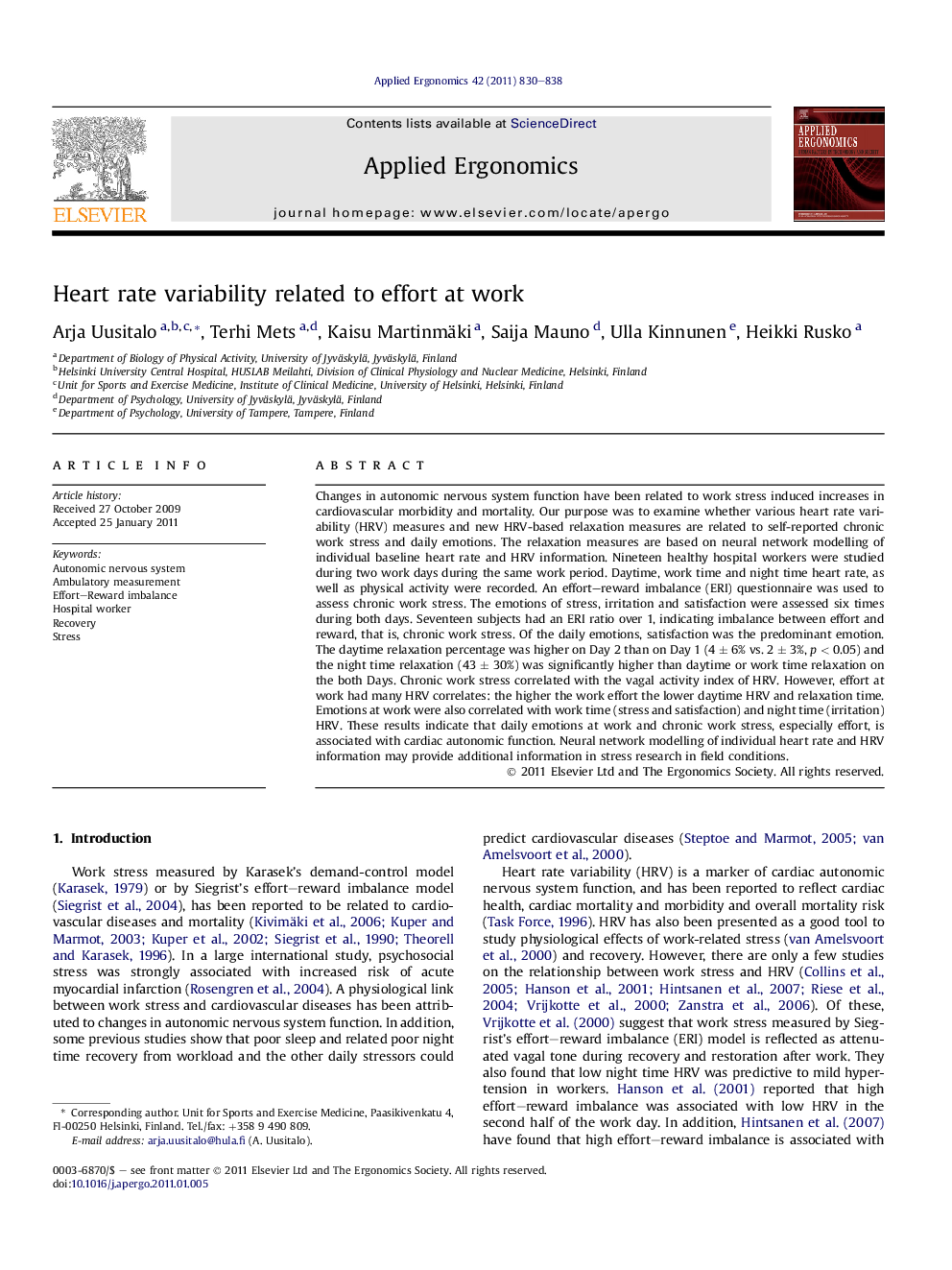| Article ID | Journal | Published Year | Pages | File Type |
|---|---|---|---|---|
| 551216 | Applied Ergonomics | 2011 | 9 Pages |
Changes in autonomic nervous system function have been related to work stress induced increases in cardiovascular morbidity and mortality. Our purpose was to examine whether various heart rate variability (HRV) measures and new HRV-based relaxation measures are related to self-reported chronic work stress and daily emotions. The relaxation measures are based on neural network modelling of individual baseline heart rate and HRV information. Nineteen healthy hospital workers were studied during two work days during the same work period. Daytime, work time and night time heart rate, as well as physical activity were recorded. An effort–reward imbalance (ERI) questionnaire was used to assess chronic work stress. The emotions of stress, irritation and satisfaction were assessed six times during both days. Seventeen subjects had an ERI ratio over 1, indicating imbalance between effort and reward, that is, chronic work stress. Of the daily emotions, satisfaction was the predominant emotion. The daytime relaxation percentage was higher on Day 2 than on Day 1 (4 ± 6% vs. 2 ± 3%, p < 0.05) and the night time relaxation (43 ± 30%) was significantly higher than daytime or work time relaxation on the both Days. Chronic work stress correlated with the vagal activity index of HRV. However, effort at work had many HRV correlates: the higher the work effort the lower daytime HRV and relaxation time. Emotions at work were also correlated with work time (stress and satisfaction) and night time (irritation) HRV. These results indicate that daily emotions at work and chronic work stress, especially effort, is associated with cardiac autonomic function. Neural network modelling of individual heart rate and HRV information may provide additional information in stress research in field conditions.
